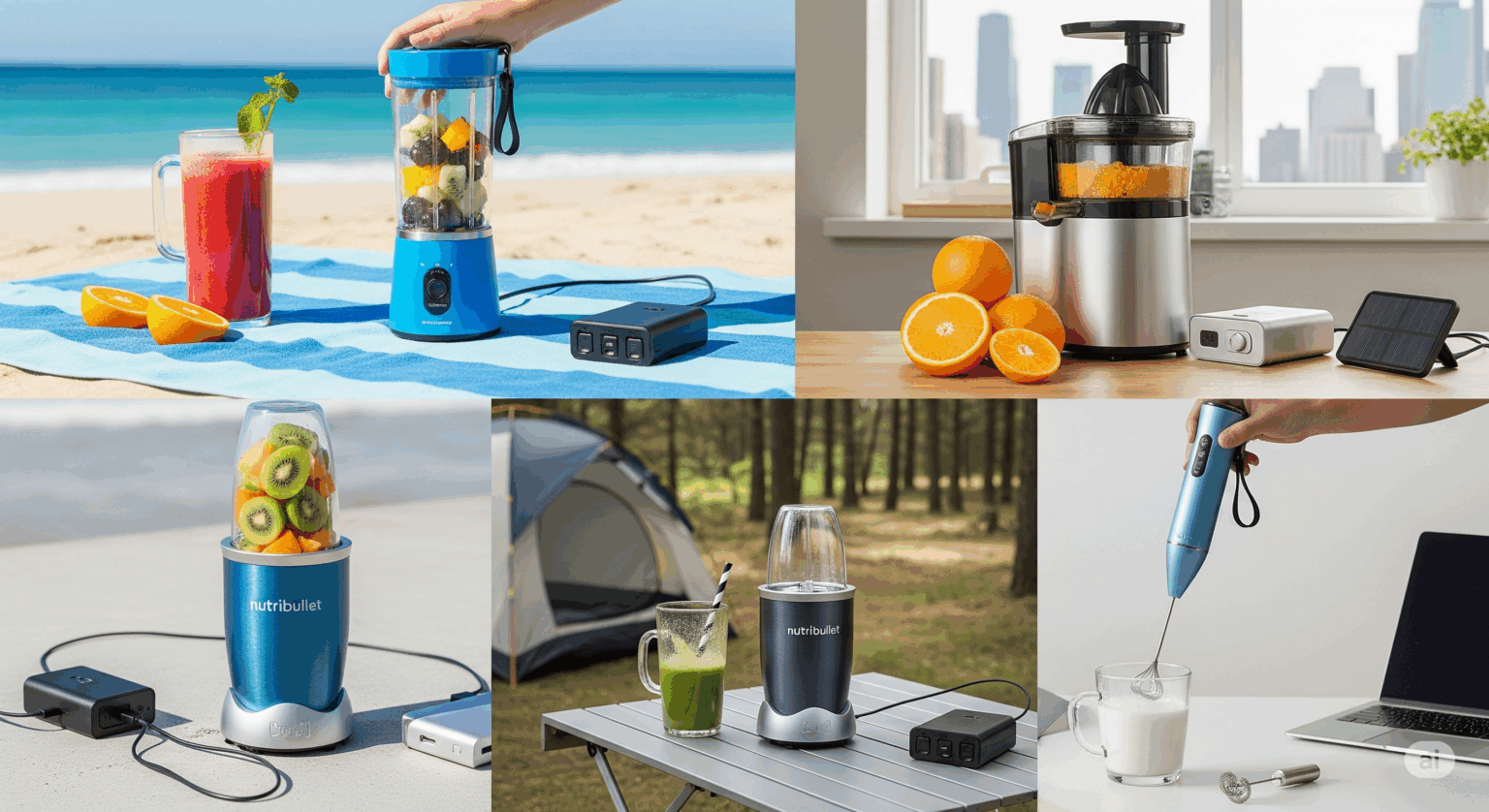Safety of Household, Commercial and Similar Electrical Appliances
DC Supplied / Battery-Operated Blenders and Juicers
Strategic Recommendations for DC Supplied / Battery-Operated Blenders and Juicers
- Start BIS Certification Process Now
Begin early to complete battery and blade safety testing before enforcement. - Partner with Compliance Experts
ERA’s technical team can assist with BIS application, testing, and ISI mark compliance. - Contact ERA Support Team
📧 cs@eraglobal.co.in | 📞 +91 9599296331 | 💬 WhatsApp— for help with applications, test-lab referrals and ISI mark implementation. - Track Notifications & Circulars
Subscribe to the ERA Newsletter to receive timely BIS circulars, QCO updates, and compliance reminders. - Ensure Marking Before Sale
Confirm that all units bear the ISI mark and meet BIS safety standards before market release.

| Section | Details |
|---|---|
| Product Name | DC Supplied / Battery-Operated Blenders and Juicers |
| Applicable Indian Standard (IS) No. | IS 302 (Part 1):2024 |
| Title of Indian Standard | Household and Similar Electrical Appliances – Safety – Part 1: General Requirements |
| Quality Control Order | Safety of Household, Commercial and Similar Electrical Appliances (Quality Control) Order, 2025 |
| Notification & Amendments | Notified via S.O. 2232(E), dated 19 May 2025 Supersedes QCO 2024: S.O. 4098(E), dated 17 Sept 2024 |
| Final Enforcement Date | Large & Medium Enterprises: 19 March 2026 Small Enterprises: 19 June 2026 Micro Enterprises: 19 September 2026 |
| Objective & Scope | To ensure electrical, mechanical, and battery safety for cordless blenders and juicers, preventing risks such as overheating, leakage, and injury. |
| Products Covered | Cordless personal blenders, portable smoothie makers, mini battery-operated juicers, rechargeable food prep blenders. |
| Exemptions | - Products exclusively for export- R&D imports up to 200 units/year- Schedule A pre-enforcement stock clearance for 6 months after implementation |
| Industries Impacted | Kitchen appliance manufacturers, personal care & wellness brands, portable appliance importers, e-commerce appliance sellers |
| Mandatory Compliance | - Must conform to IS 302 (Part 1):2024- BIS certification under Scheme-I is mandatory- ISI mark must be on product & packaging before sale |
| Next Steps for Stakeholders | Apply for BIS licence, arrange testing, update markings & manuals, declare Schedule A stock if applicable |
| Legal Framework Provision & Enforcement | Enforced under the BIS Act, 2016 by the Bureau of Indian Standards |
| Penalties | Non-compliance may result in seizure of stock, license suspension, fines, or imprisonment up to 2 years, or both |
| Conclusion | From 19 March 2026, all battery-operated blenders and juicers sold in India must comply with IS 302 (Part 1):2024, be BIS-certified, and display the ISI mark to ensure user safety and regulatory compliance. |
| References/Annexures | - QCO 2025: S.O. 2232(E) [19 May 2025] - Superseded QCO 2024: S.O. 4098(E) [17 Sept 2024] |
Ready to start your certification journey?
Let us help you navigate regulatory challenges and achieve certification with ease. Leave us your details, and we’ll get back to you—or request a free consultation today.
Get in touch with us today
Notification
DC Supplied / Battery-Operated Blenders and Juicers are regulated under the Safety of Household, Commercial and Similar Electrical Appliances (Quality Control) Order, 2025, issued via S.O. 2232(E) on 19 May 2025 under the BIS Act, 2016. This QCO replaces the earlier 2024 order.
Overview
Cordless blenders and juicers are increasingly popular for their portability and convenience. These appliances use rechargeable batteries and sharp blades, making them susceptible to hazards like overheating, battery failure, and mechanical injury if not designed to meet safety standards.
Objective & Scope
IS 302 (Part 1):2024 specifies requirements for electrical safety, mechanical integrity, motor performance, battery protection, and blade safety in portable blending and juicing devices.
Products Covered
- Portable smoothie blenders
- Rechargeable travel juicers
- Battery-powered food prep blenders
- Mini cordless fruit and vegetable blenders
Exemptions Provided
- Export-only models
- R&D imports up to 200 units/year not for retail sale
- Schedule A stock sale allowed for 6 months post-enforcement upon BIS declaration
Industries Impacted
- Small appliance manufacturers
- Kitchen appliance importers and distributors
- Health & wellness product brands
- E-commerce sellers of portable appliances
Mandatory Compliance Requirements
Manufacturers and importers must:
- Obtain BIS certification under Scheme-I
- Conduct safety testing at BIS-approved labs
- Affix ISI mark on both product and packaging before sale
Enforcement Timeline
- Large & Medium Enterprises: 19 March 2026
- Small Enterprises: 19 June 2026
- Micro Enterprises: 19 September 2026
Next Steps for Stakeholders
- Initiate BIS application for IS 302 (Part 1):2024
- Complete electrical and mechanical safety testing
- Prepare ISI-compliant labels and manuals
- Declare Schedule A inventory to BIS
- Ensure compliance readiness before enforcement date
Legal Provisions, Enforcement & Penalties
The BIS, empowered under the BIS Act, 2016, will oversee implementation.
Non-compliance may result in:
- Seizure of stock
- Suspension or cancellation of BIS license
- Fines and/or imprisonment up to 2 years, or both
Conclusion
From 19 March 2026 (with staggered deadlines for MSMEs), all battery-operated blenders and juicers must conform to IS 302 (Part 1):2024, be BIS-certified, and carry the ISI mark. This ensures safer products, protects consumers, and maintains market compliance.
Ready to start your certification journey?
Let us help you navigate regulatory challenges and achieve certification with ease. Leave us your details, and we’ll get back to you—or request a free consultation today.
